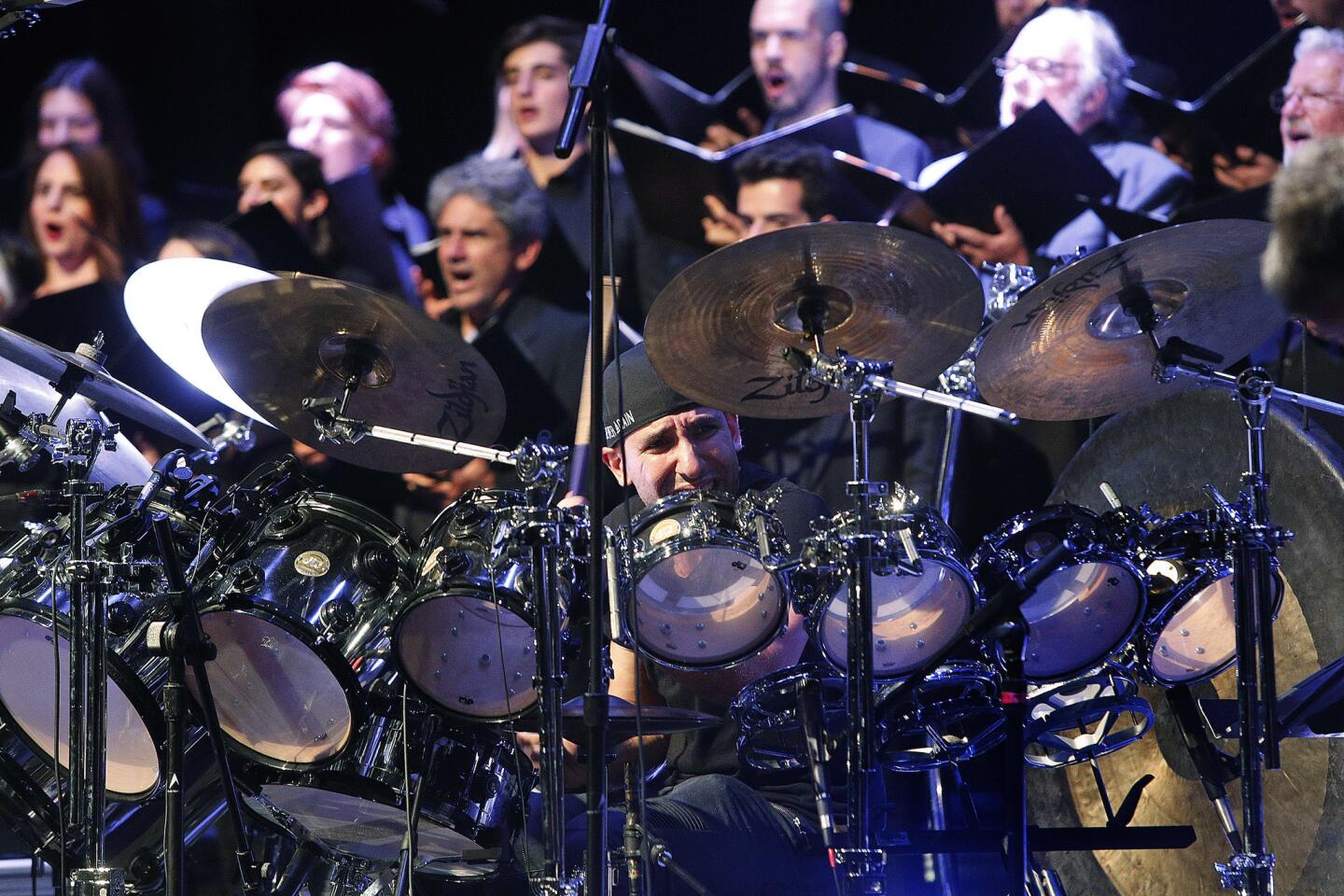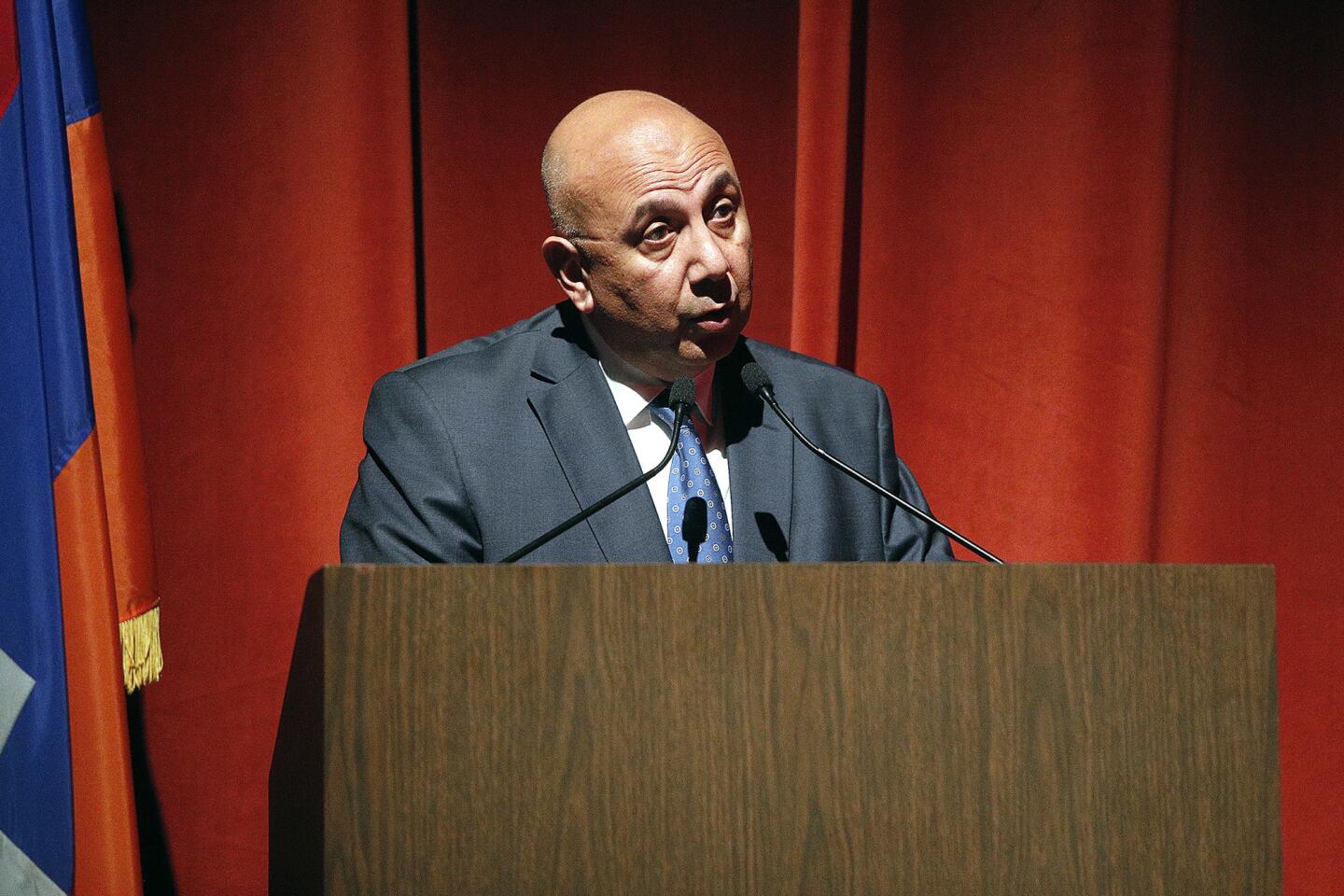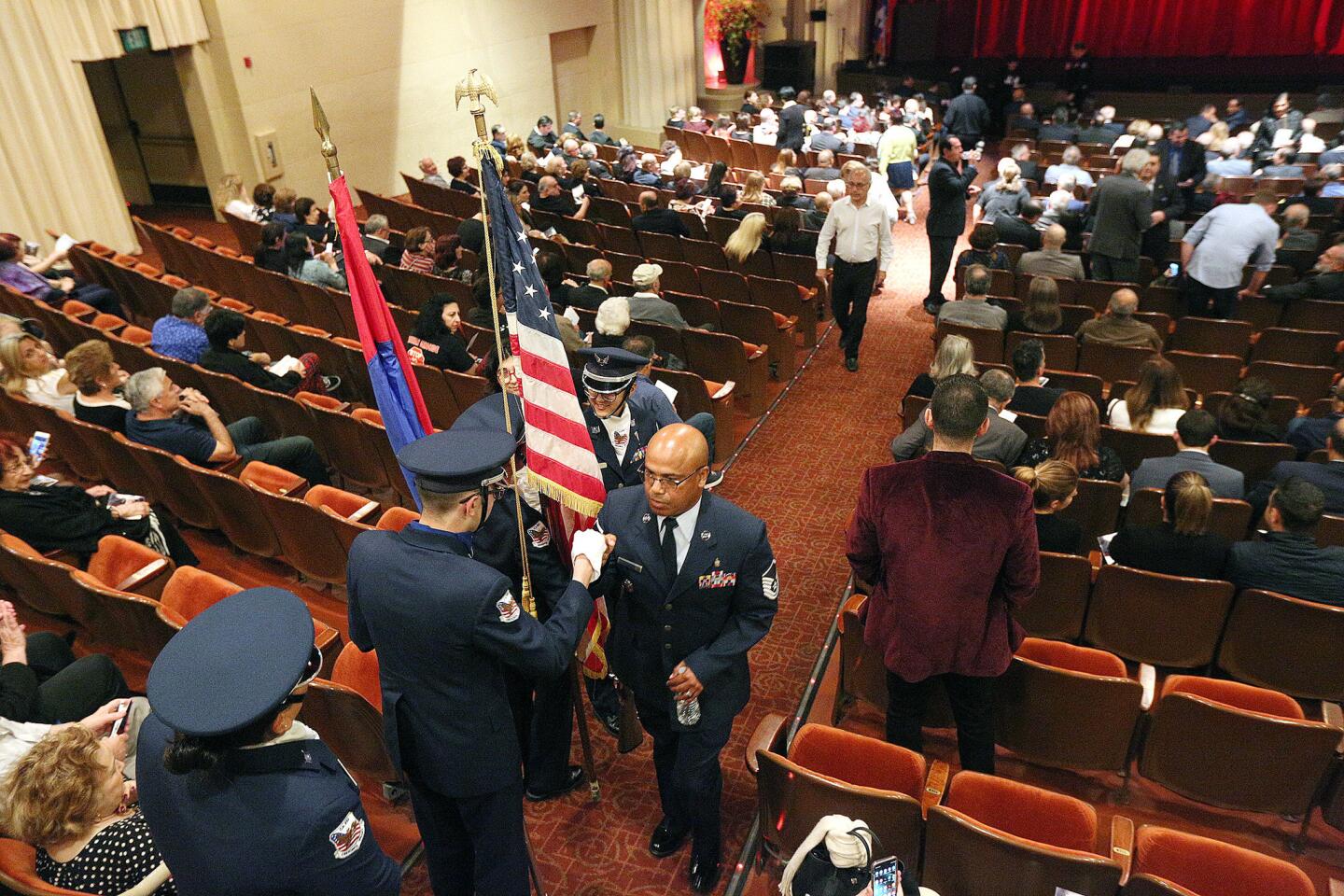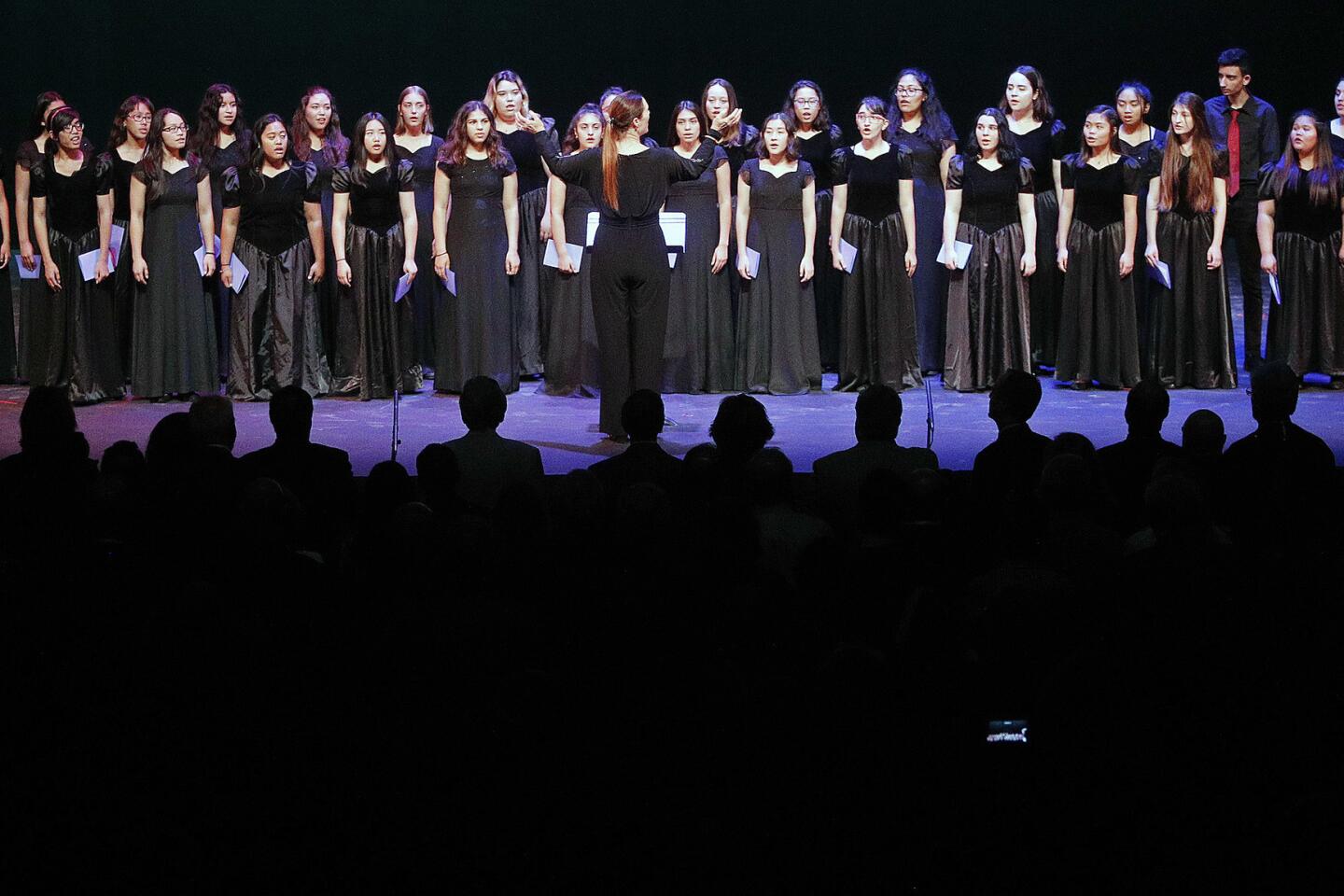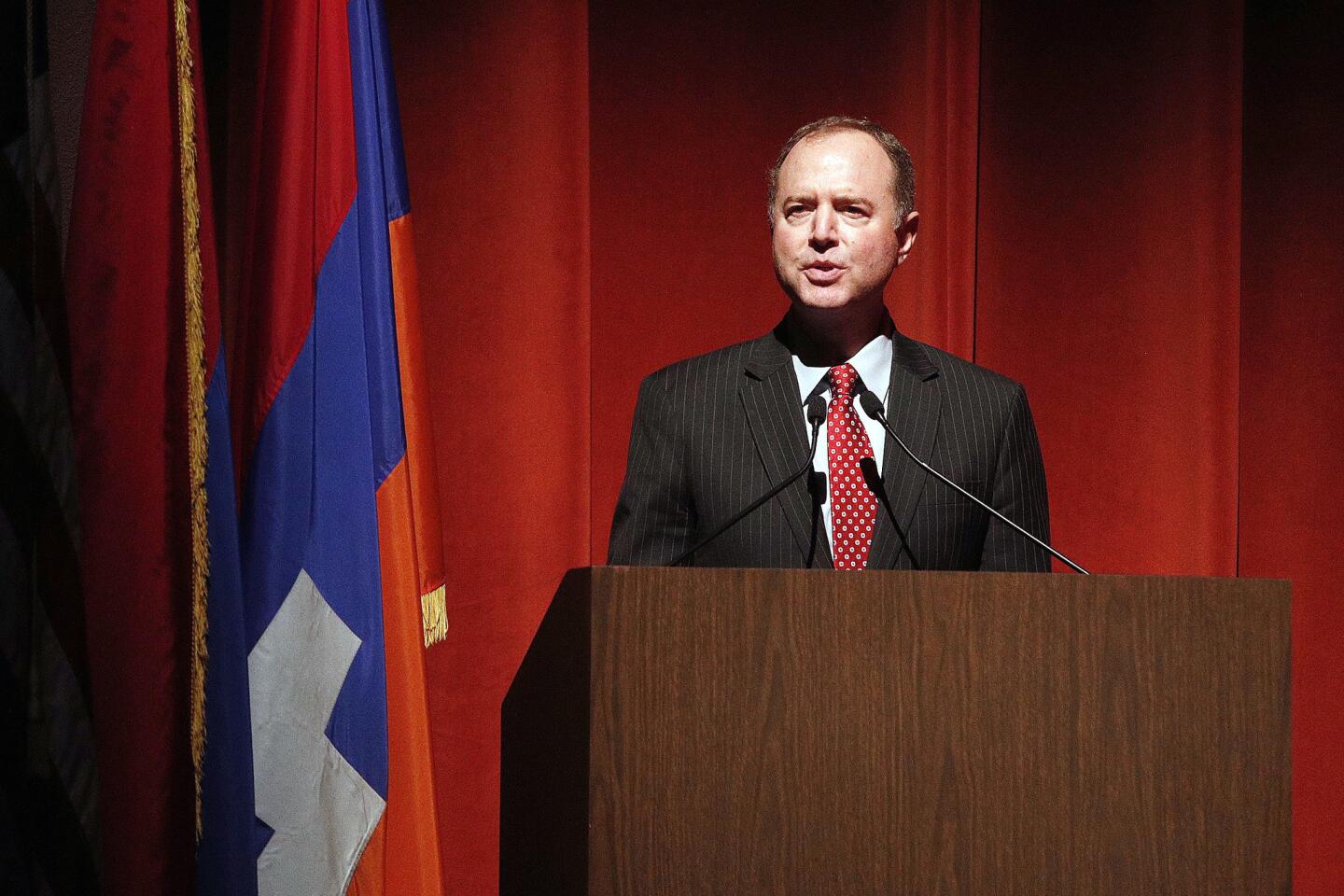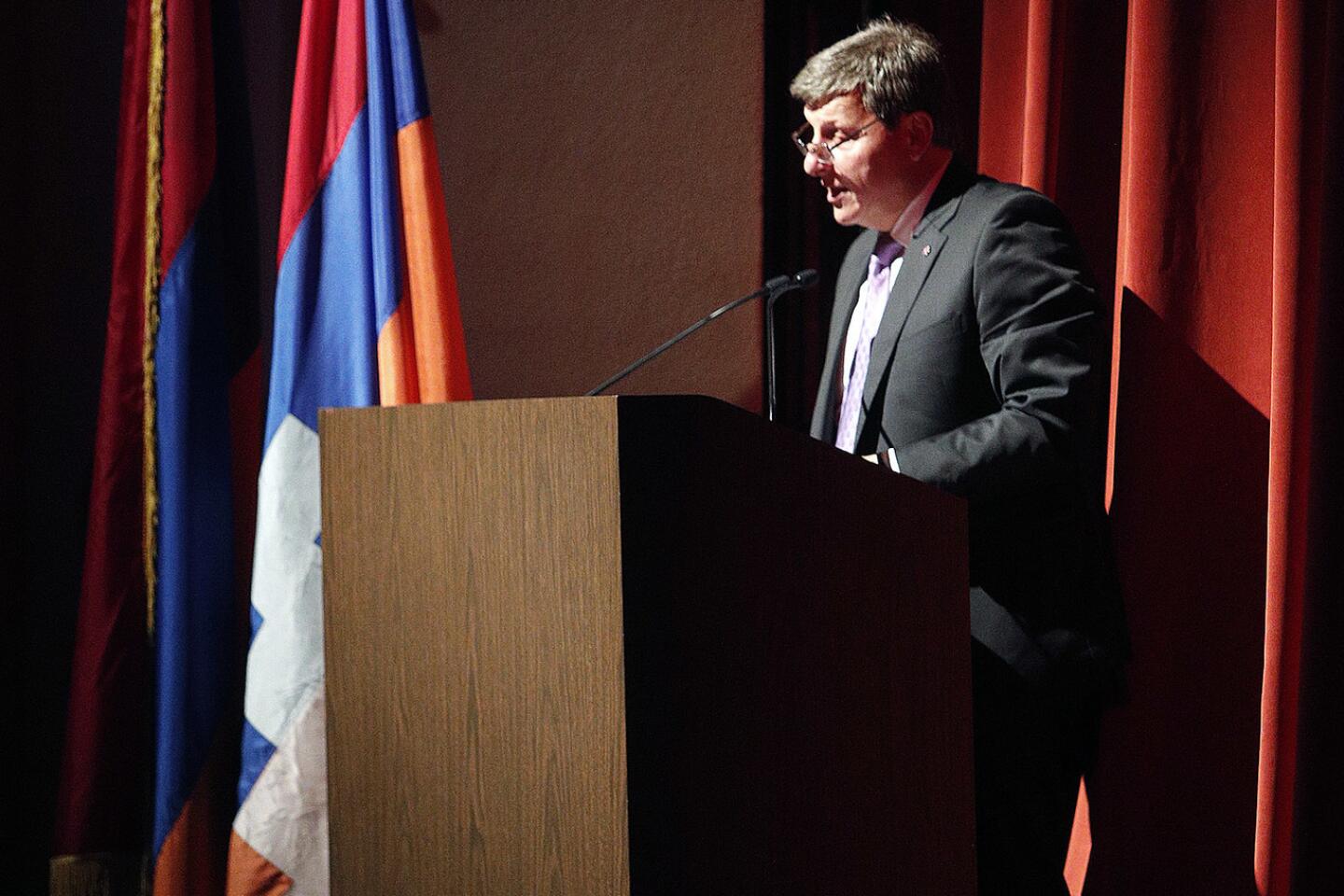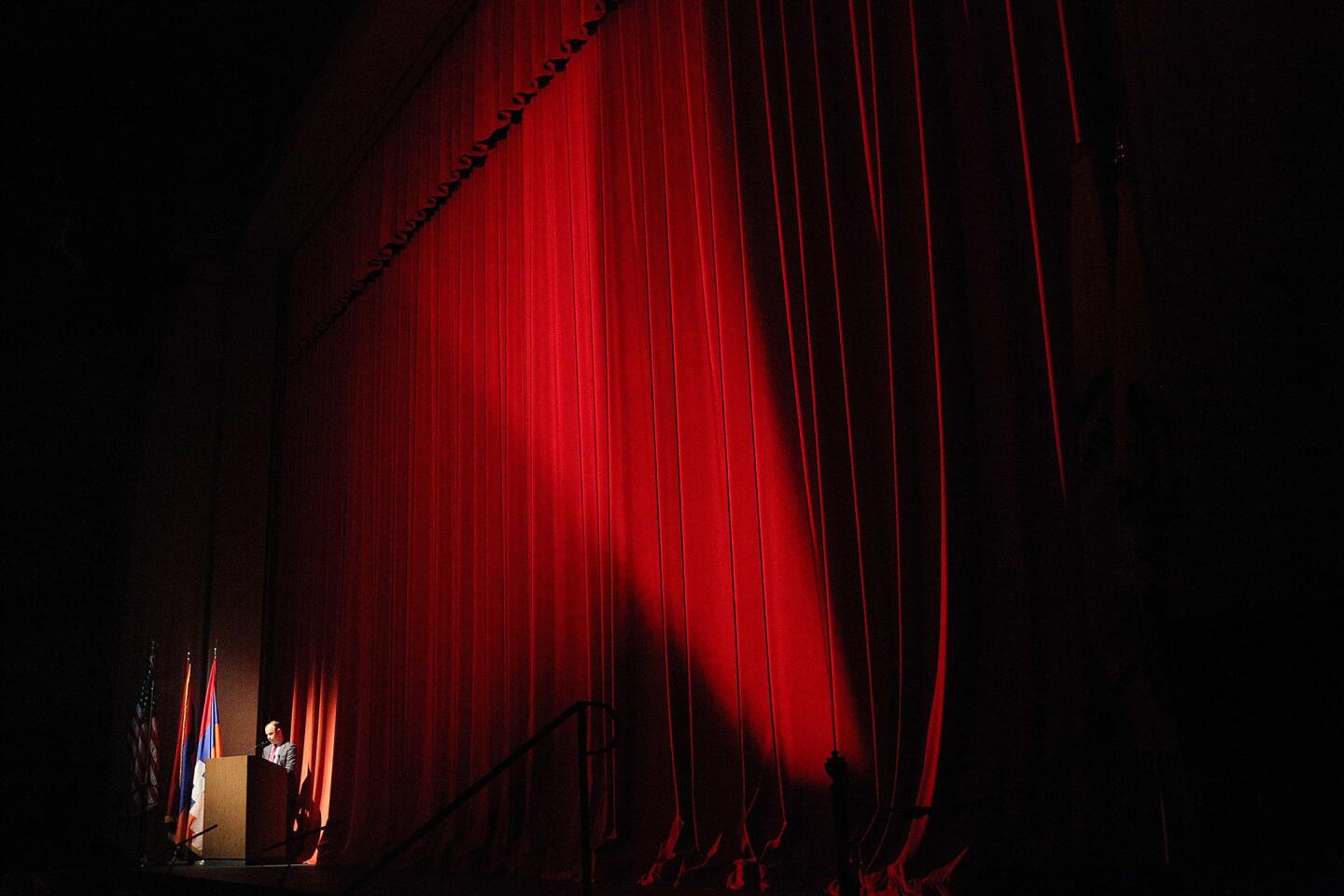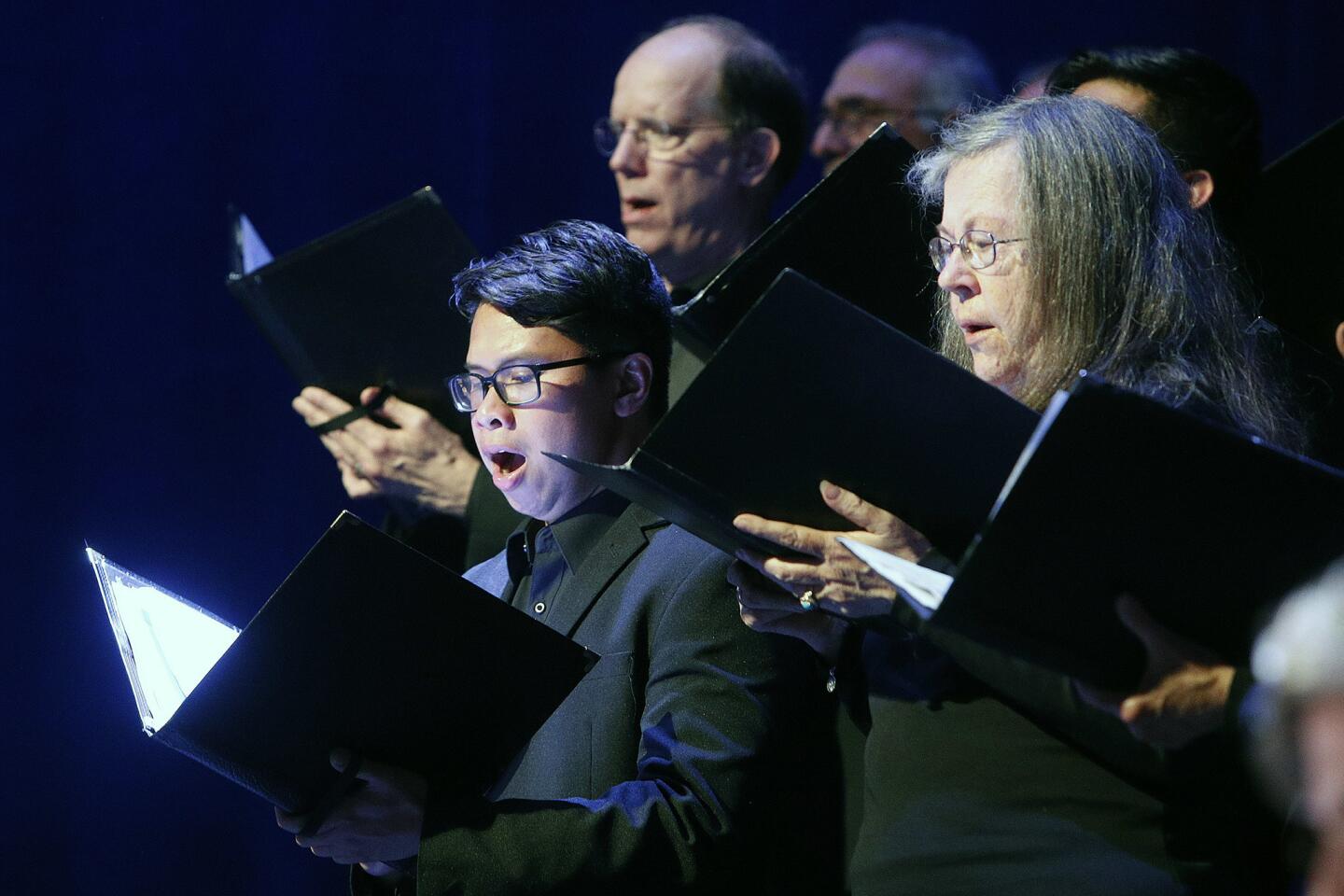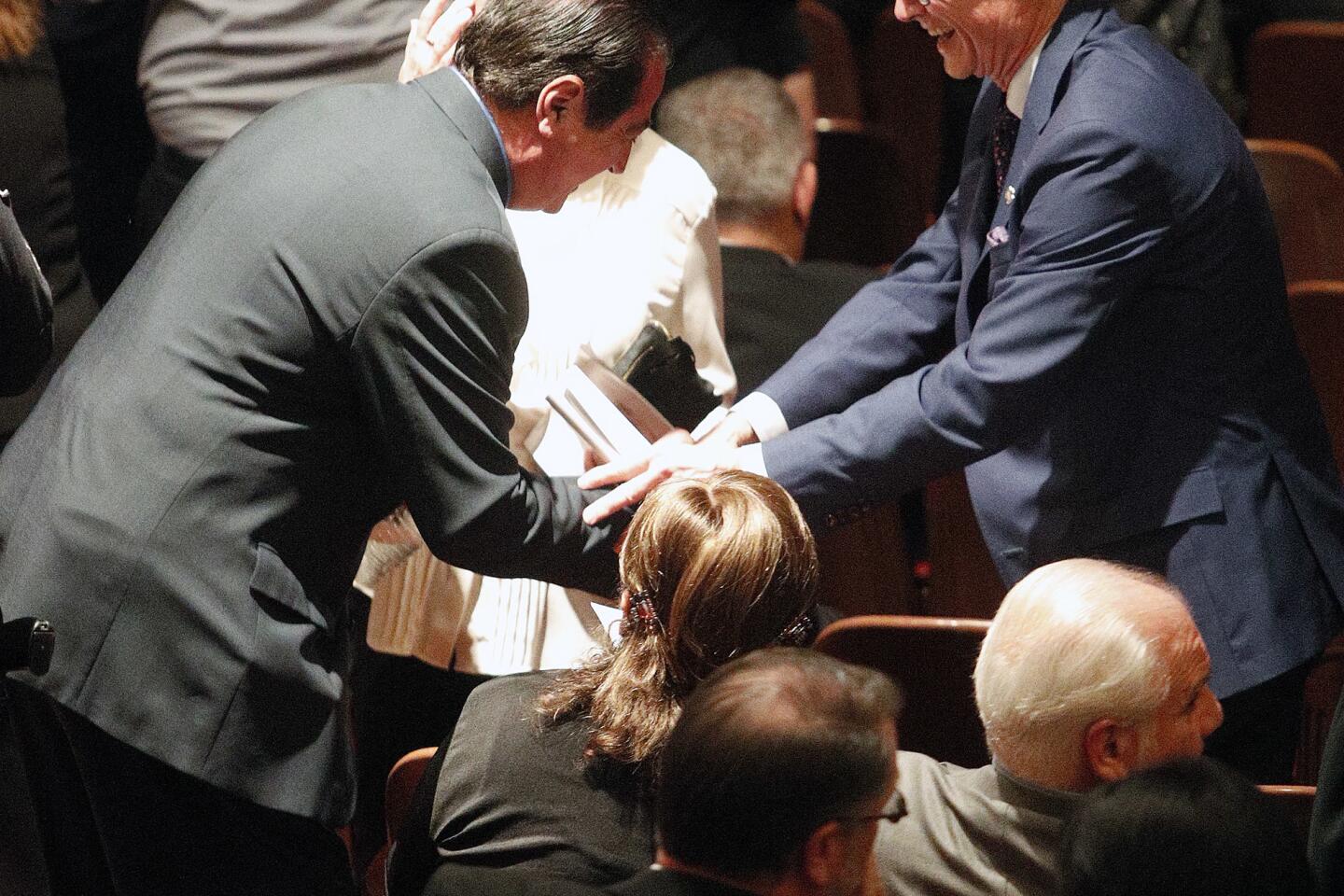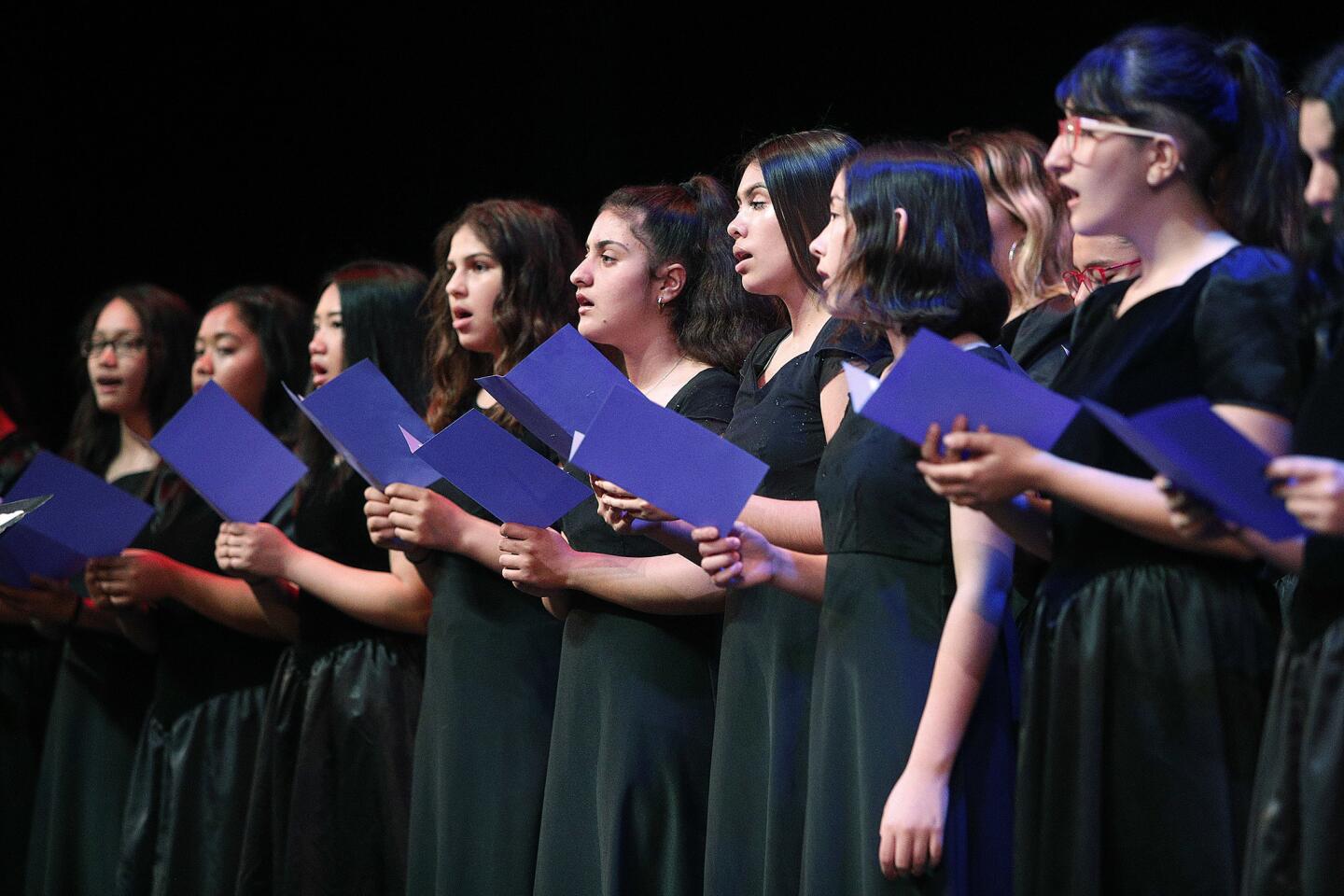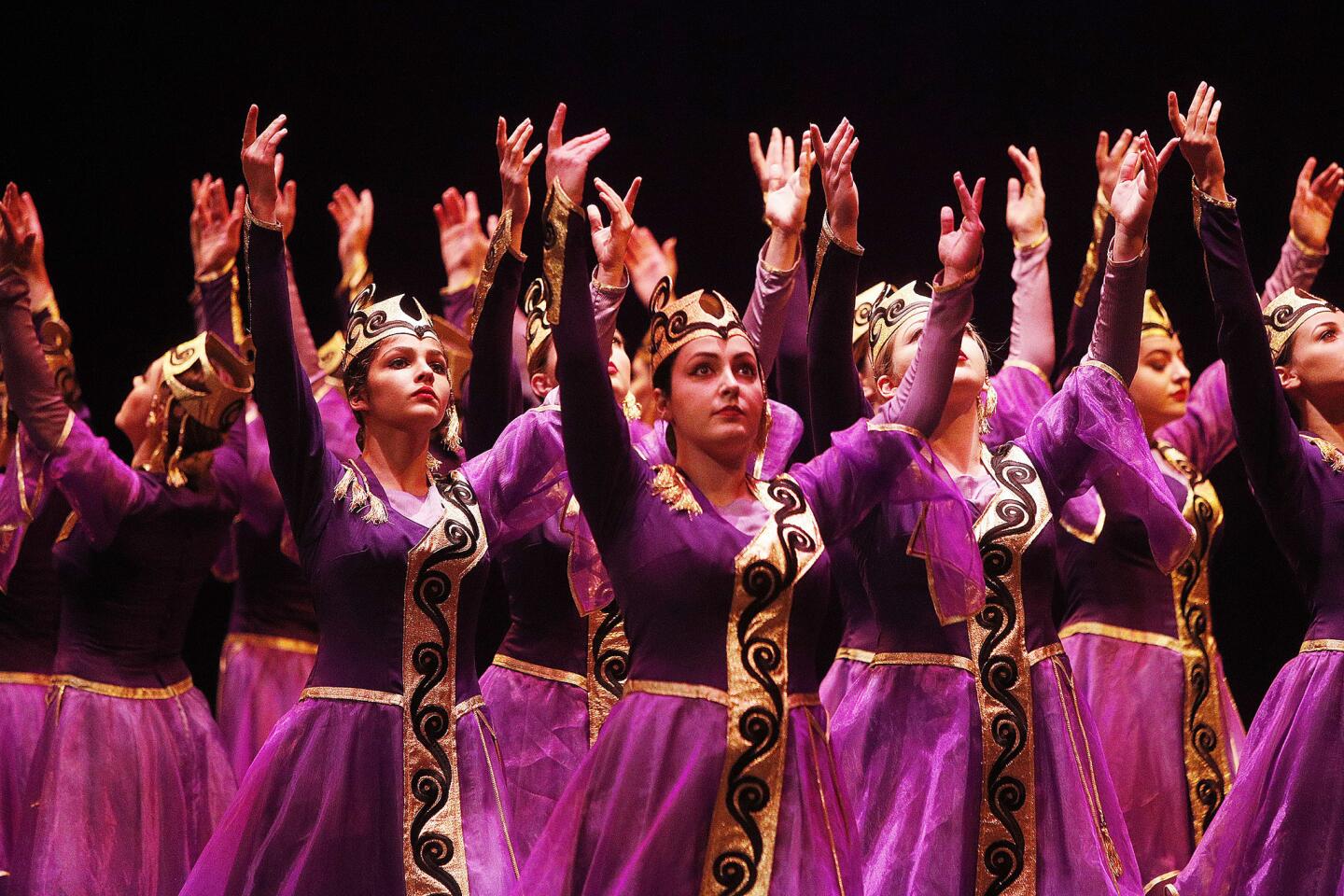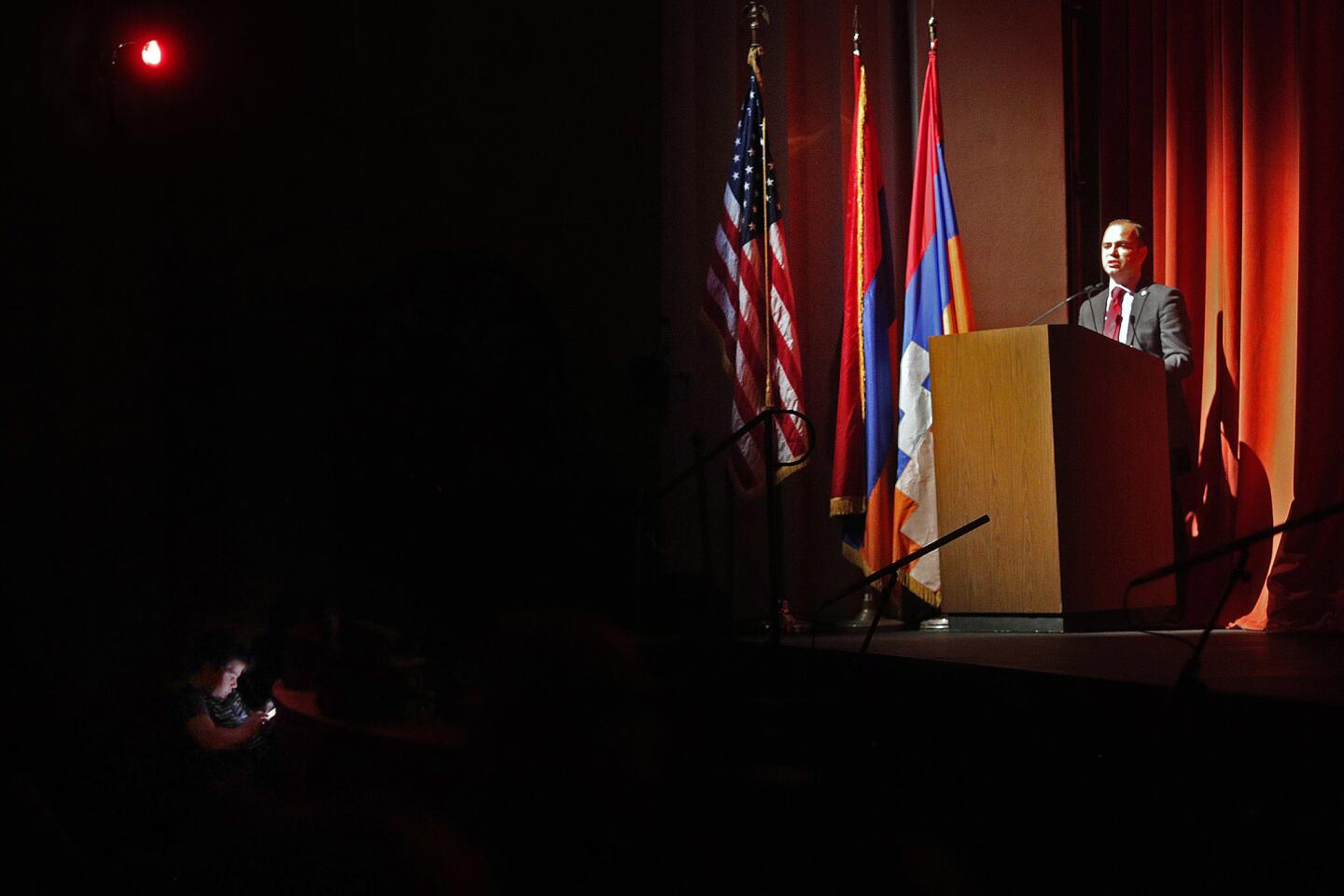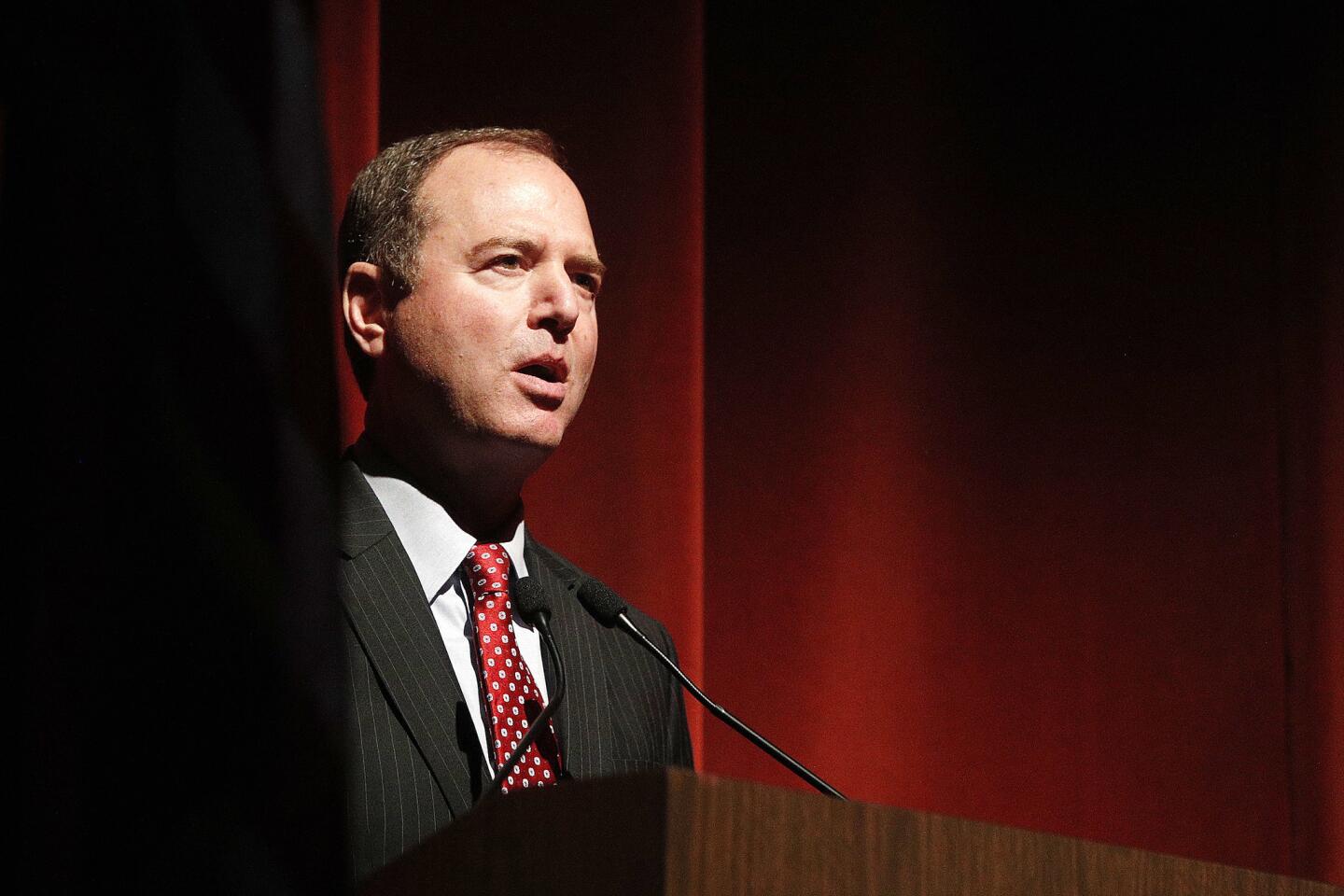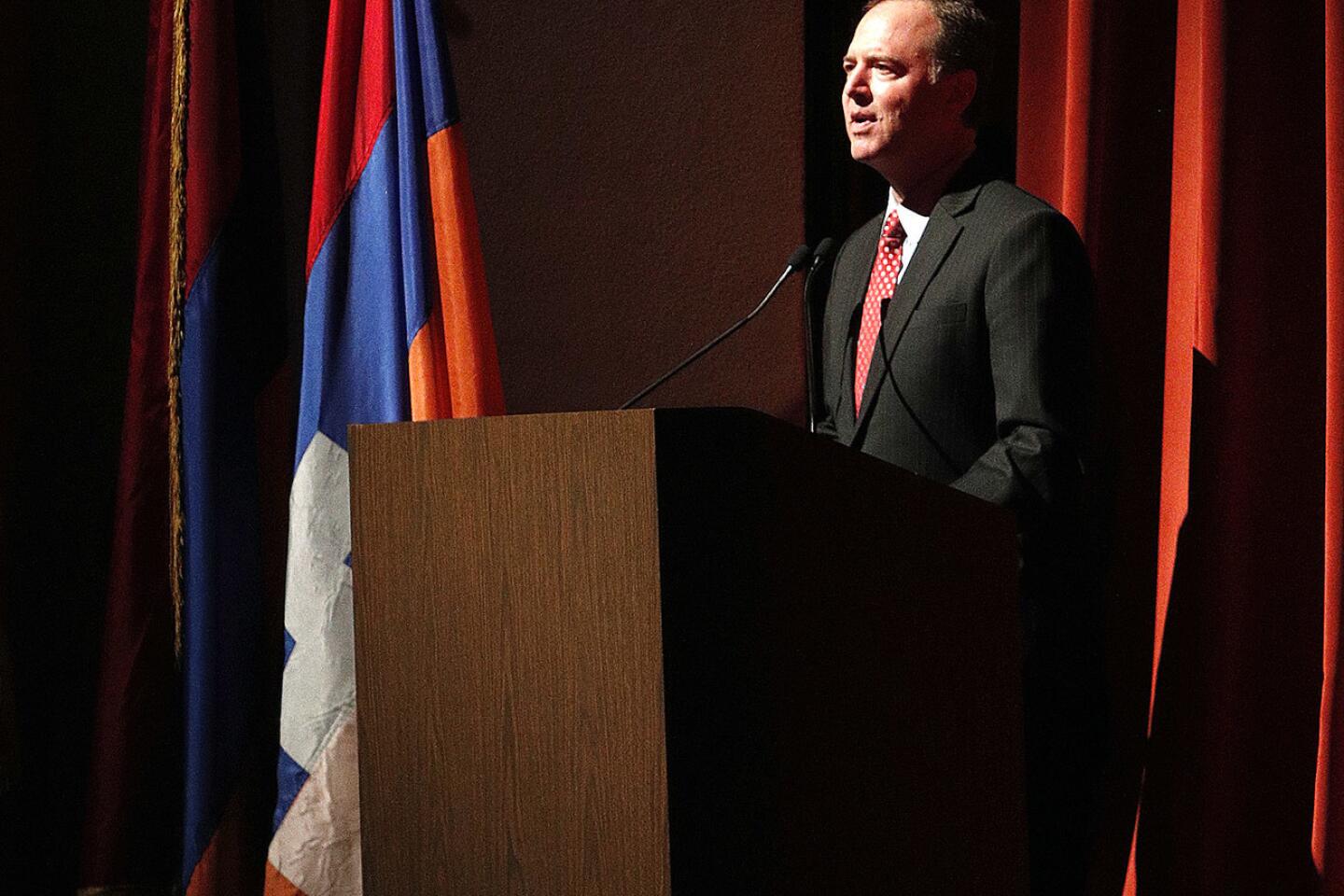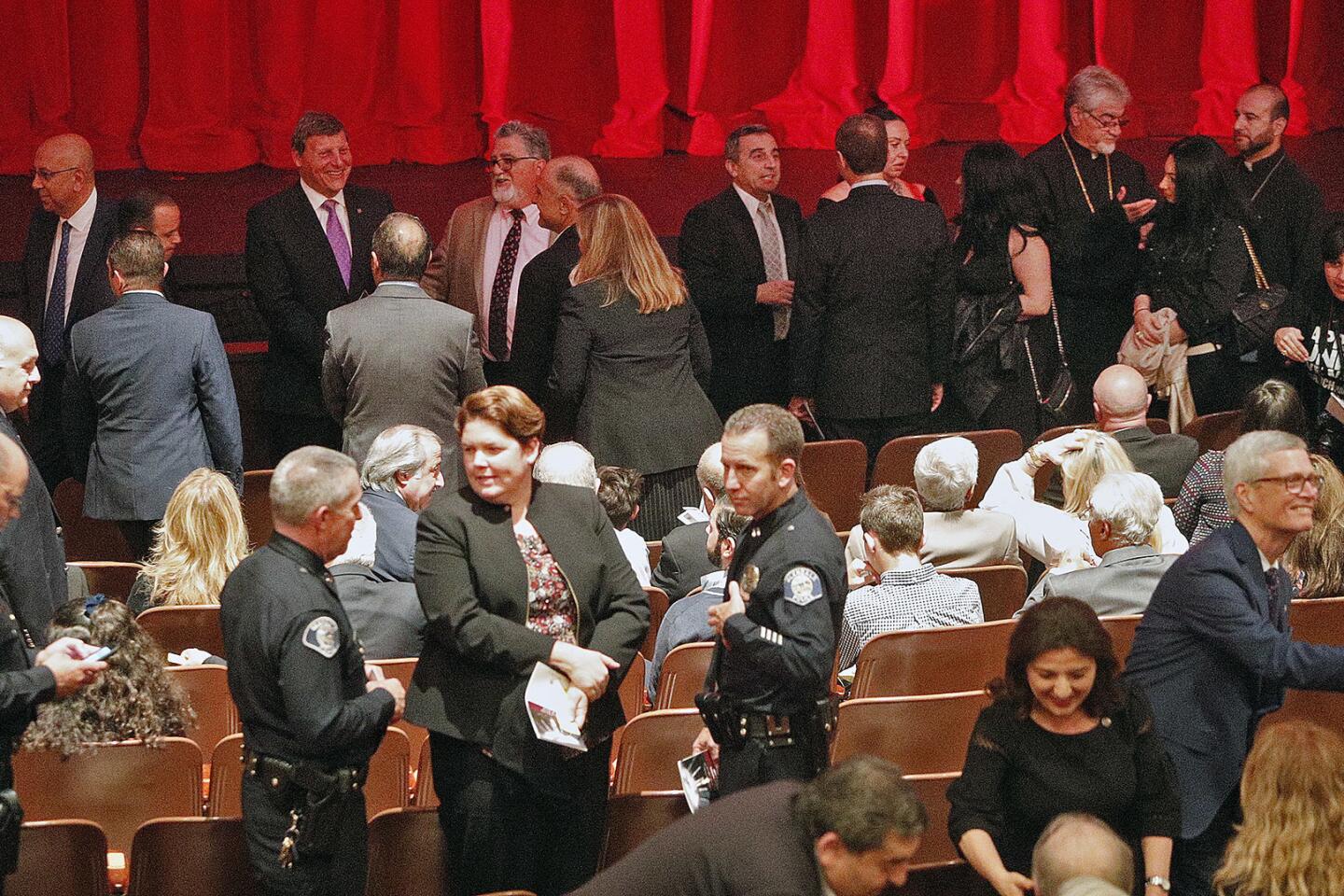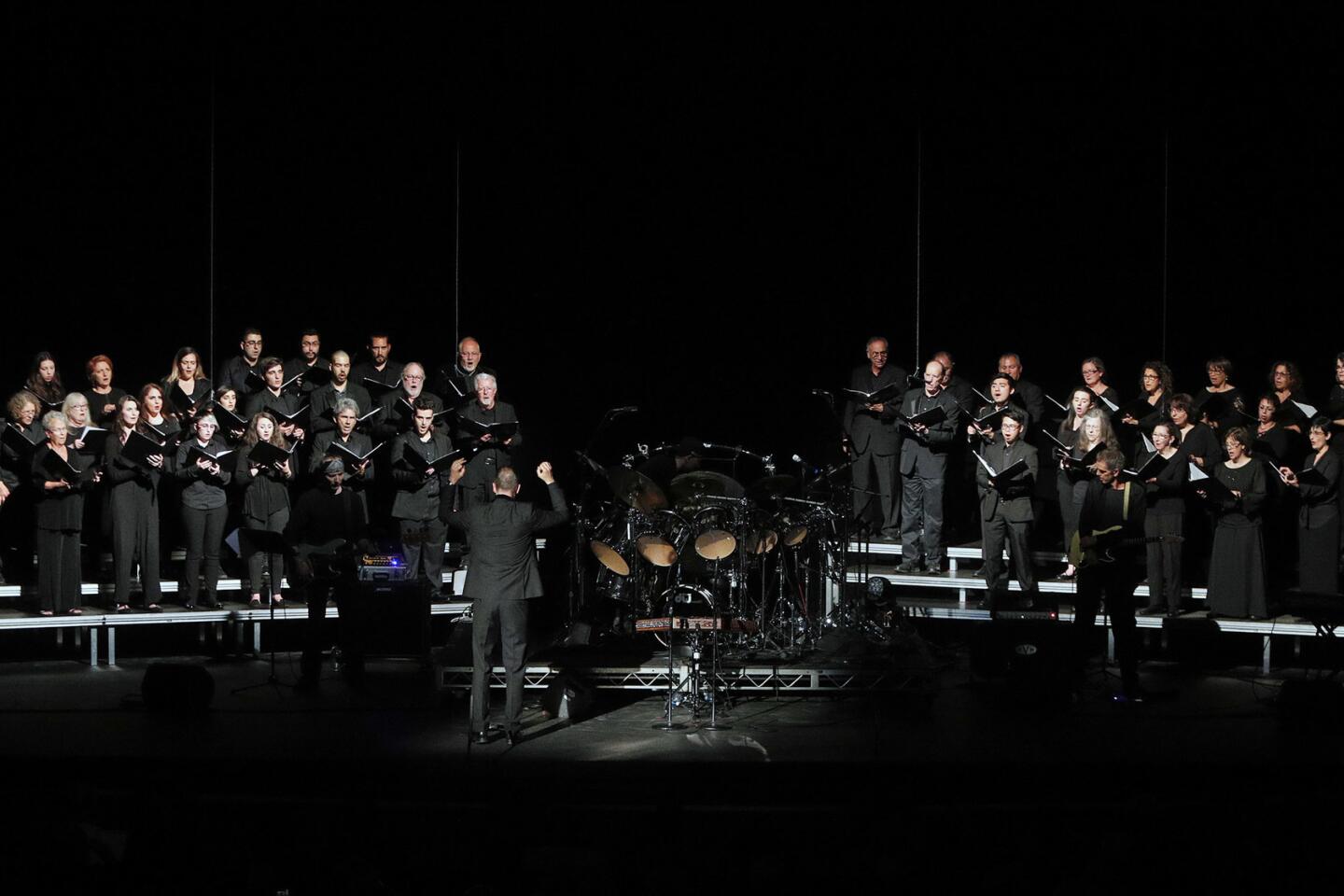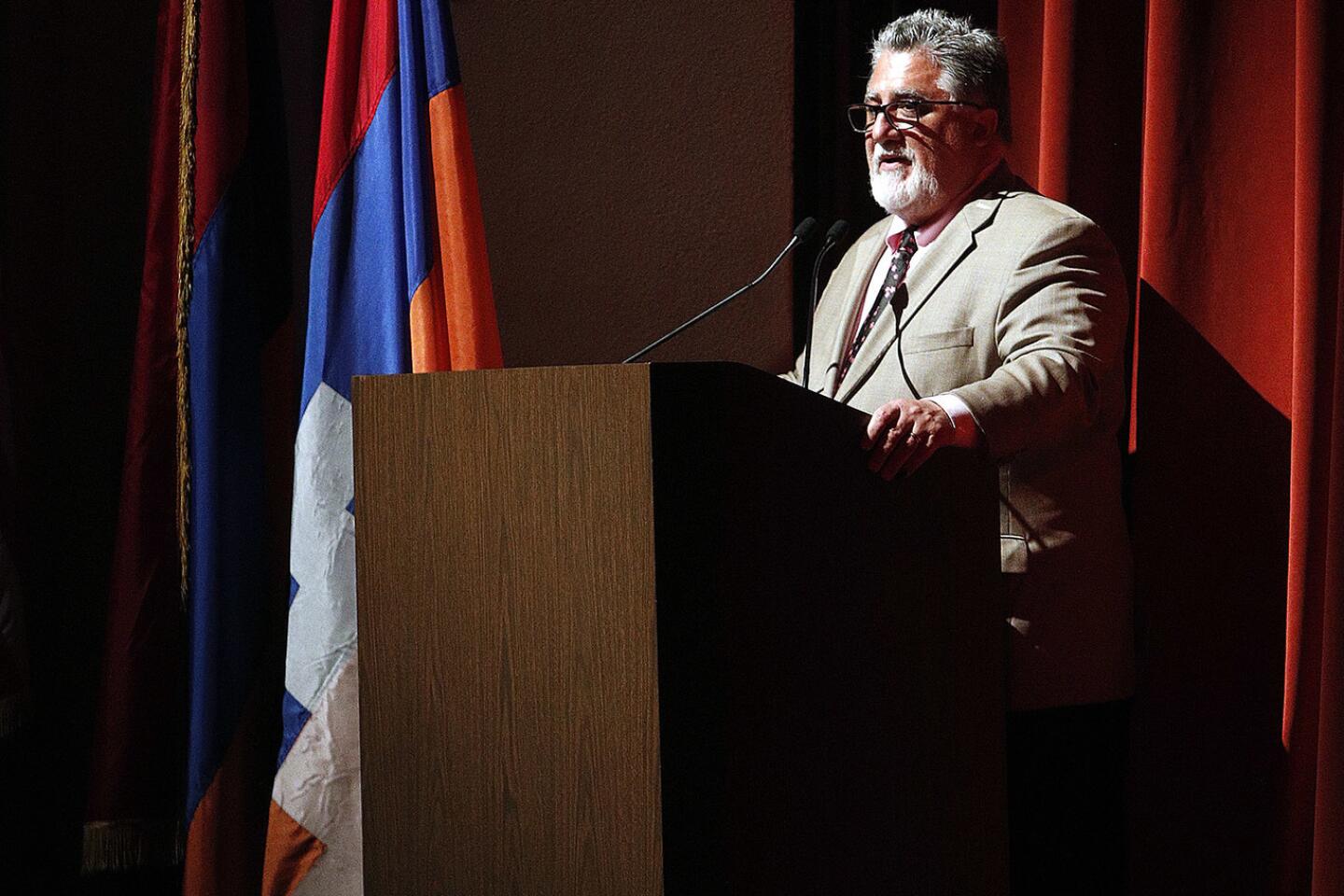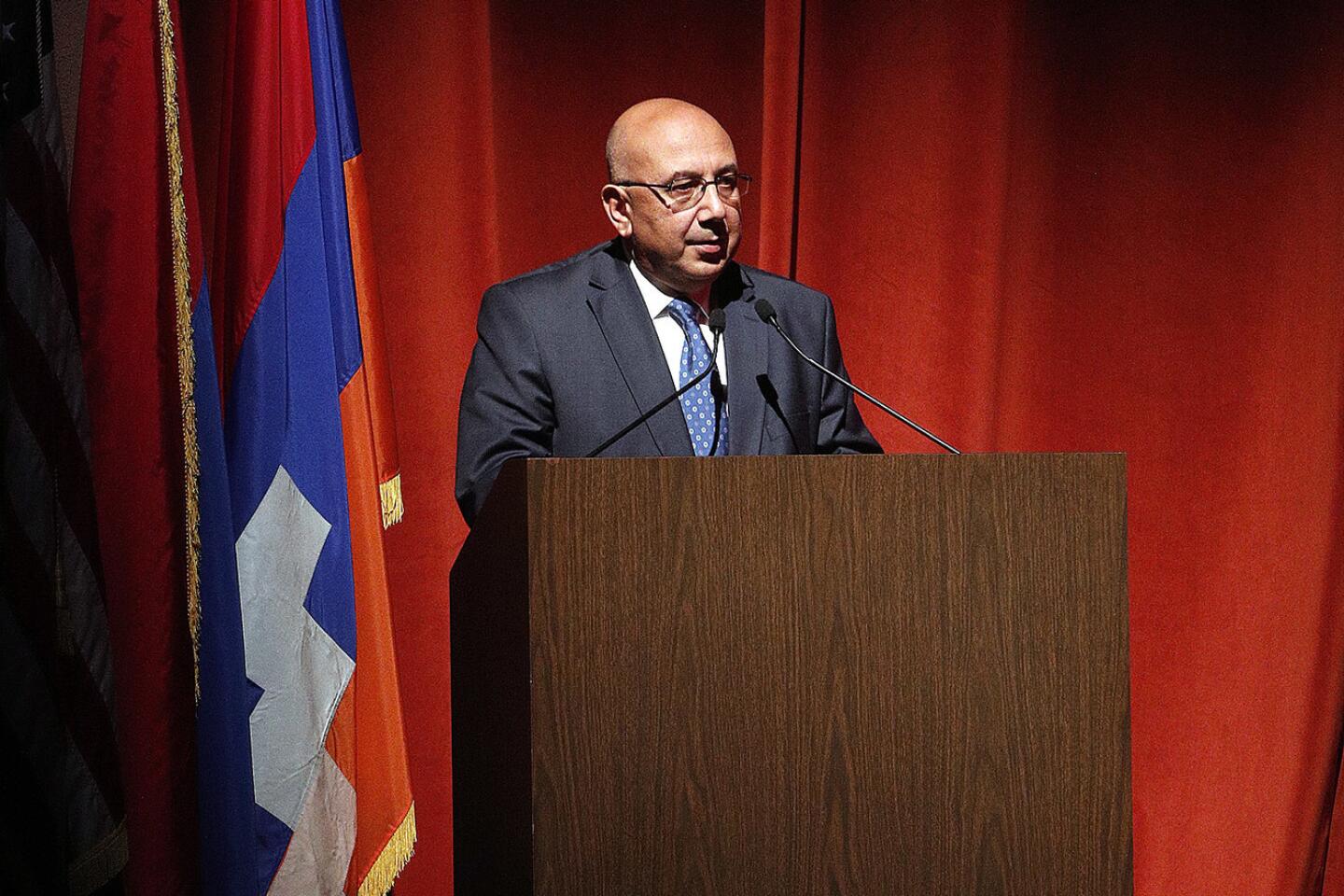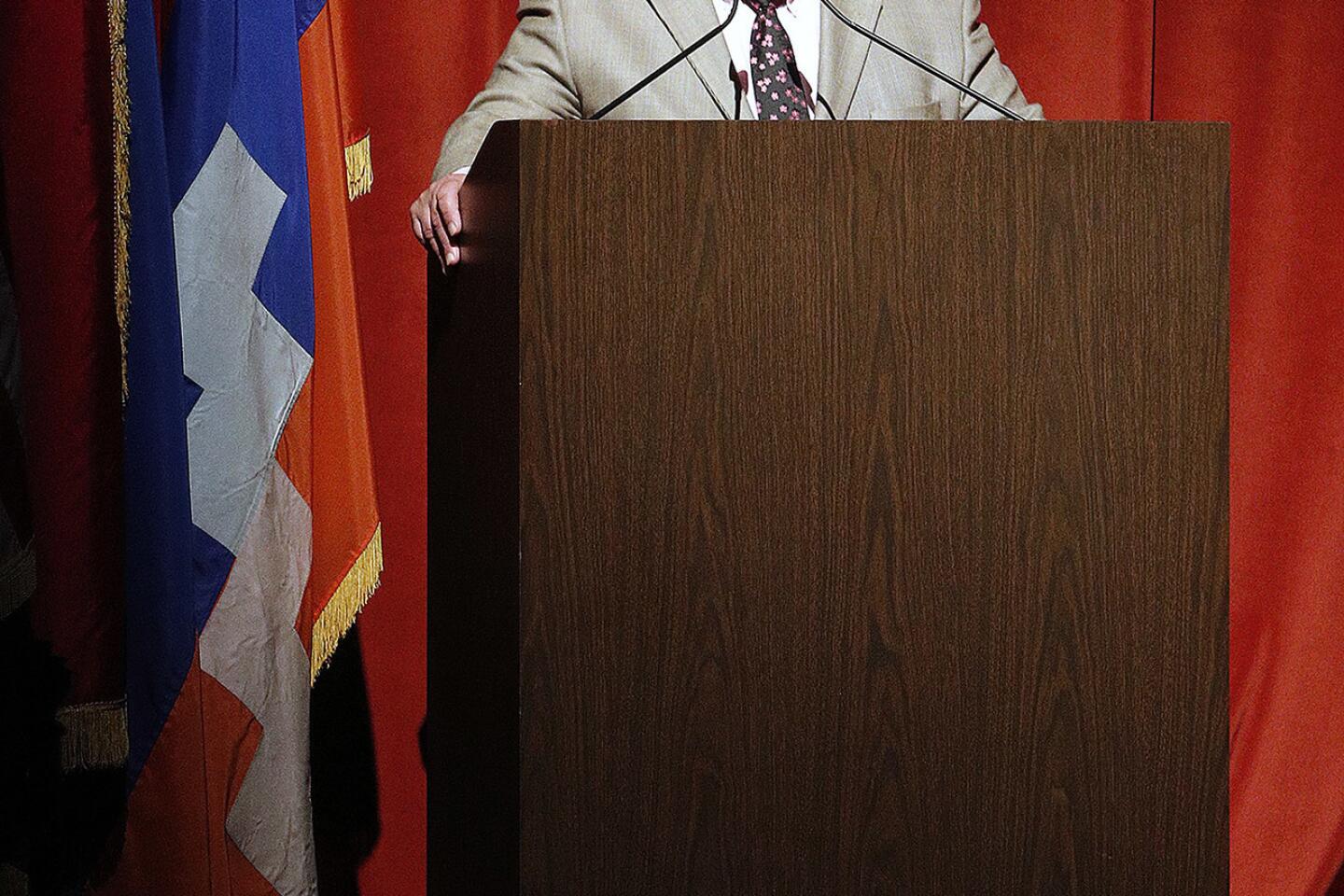Commentary: Armenian Genocide commemoration in Glendale ends on note of unity and acceptance
- Share via
Dressed in traditional Armenian costumes, the Zvartnots Dance Ensemble waved their hands in sync to the sounds of an old folk song, highlighting the tenor voice of singer Komitas — his melancholic tunes mirrored the unsettling chaos and suffering experienced in the Armenian Genocide of 1915.
The dance performance was part of the 18th annual Armenian Genocide commemorative event on Wednesday, hosted by the city of Glendale, which has a large and active Armenian community.
During the event, there were stories of survivors of the Armenian Genocide.
Glendale Mayor Ara Najarian spoke about his grandfather, Harout, whose childhood love, Tefriz, was forced by an older Turkish neighbor named Ali to become his unwedded wife at the tender age of 12.
Najarian said Ali took often beat Tefriz if she refused to do as he said. There was nothing that Harout could do, because he, too, was Armenian.
The mayor also spoke of the heartbreak of people seeing their loved ones killed, including a wealthy community leader named Artin Agha of Peril in the Kharpert region of historic Armenia, whose wife and children were beaten and stoned to death right before his eyes.
Najarian’s two stories reminded attendees of the past, while other speakers prompted the crowd to look at the other side of the issue — raising awareness of the genocide and fighting for recognition.
The killings of the Armenians lasted several years, during which an estimated 1.5 million men, women and children perished in the hands of the Ottoman Empire, which today is Turkey.
The killing techniques used were called “inhumane and cruel” by historians.
State Sen. Anthony Portantino (D-La Cañada Flintridge) said his passion for spreading the word of the Armenian Genocide comes from his childhood, when his Italian immigrant mother told the horrors of the orphaned Armenian children.
“While survivors suffered with trauma, they shared with the world the inhumane crimes they witnessed and endured,” Portantino said. “I feel connected to those stories.”
In his speech, Portantino vowed to push the story forward. “The atrocities can never be undone. But through the appropriate embrace of history, Armenians can heal,” he said.
Rep. Adam Schiff (D-Burbank) has advocated for years for the United States to formally recognize the Armenian Genocide.
“Armenian[s] were rounded up to be exterminated…as part of what was described all-too-accurately as an effort to annihilate an entire people,” Schiff said. “Still, here we are; in the strongest nation on Earth, in an America which does not recognize the Armenian Genocide through its government.”
He expressed his concern the American government has failed its Armenian citizens. Schiff said he has battled against a “vigorously-funded denial campaign, organized by the Turkish government,” adding that governmental recognition oftentimes has more to do with business than morality.
Armen Baibourtian, Armenia’s consul general in Los Angeles and keynote speaker at the event, told a story that echoed Schiff’s viewpoint.
During a diplomatic conference in Rome in 1998, Baibourtian came across a pamphlet published by the Italian Foreign Ministry, referring to the Armenian Genocide as “the first of its kind in the 20th century.”
Baibourtian asked his Italian colleagues why they printed that, despite their government’s resistance to recognize the genocide.
“This is a fact that everyone acknowledges, but the position of governments and parliaments is a formality,” Baibourtian said he was told.
The consul general went on to commend those in differing government positions, who continuously challenge the breakage of those “formalities,” in order for a moral resolution to occur.
“Today, 49 out of 50 states have recognized the Armenian Genocide, but to my knowledge, only 10 are required to teach students about [it],” Baibourtian said. “Raising awareness is of paramount importance.”
Glendale Unified became the first school district in the country to establish a non-instructional day on April 24 to honor the Armenians killed during the genocide.
In addition, the city of Los Angeles has named the month of April as Genocide Awareness Month.
In the city of Glendale, from the development of the upcoming Armenian-American Museum to the renaming of a two-block portion of Maryland Avenue to Artsakh Avenue, City Councilman Zareh Sinanyan said he thinks the Armenian community is slowly building its legacy in local community, in Armenia and around the world.
The commemorative event ended on a positive note of unity and acceptance. An Armenian band came together with two of Glendale Community College’s choirs to perform a version of “Erebuni Yerevan,” a song dedicated to the Armenian capital and its significance to the people of Armenia.
Marian Sahakyan is a contributor to Times Community News.
